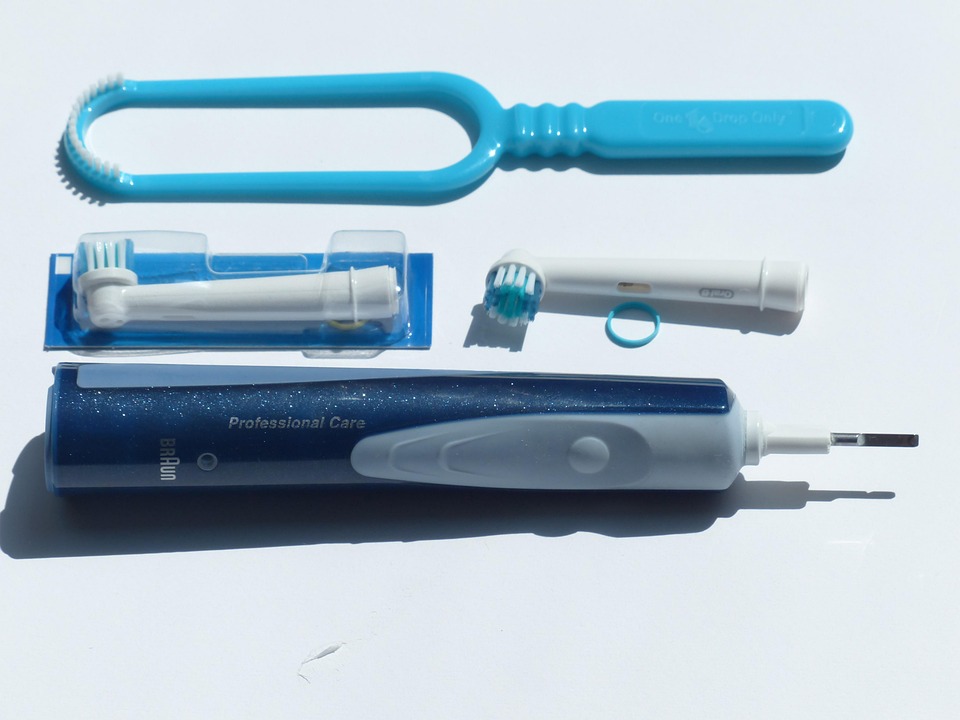
Do You Have To Pay For Dental Implants Upfront
Losing a tooth isn’t just hard on your bite. It can hurt your confidence, change what you can eat, and even impact your health. Dental implants are the best option, but the price can be shocking. The big question everyone wants to know is, “Do you have to pay for dental implants upfront?” If you’re worried about paying for your dream smile, this article is for you. I’ll explain the costs, share my own story, and give you easy ways to handle the price of implants. Keep reading—your smile (and your wallet) will thank you!
Article Outline
- What Are Dental Implants And Why Are They So Expensive?
- Do Dentists Usually Ask For Full Payment Before The Procedure?
- Can You Get Dental Implants Without Paying All At Once?
- What Payment Plans Might Be Available For Dental Implants?
- Does Dental Insurance Cover Implants?
- Can Medical Loans Or Financing Help With The Cost?
- Are There Cheaper Ways To Get Dental Implants?
- How Does Choosing The Right Dental Lab Save Money?
- What Happens If You Can’t Pay For Dental Implants Upfront?
- Should You Trust Discount Implants Or Overseas Clinics?
- How Can You Prepare Financially For Your Dental Implant Journey?
- Key Takeaways: All You Need To Remember About Paying For Dental Implants
What Are Dental Implants And Why Are They So Expensive?
When someone loses a tooth, they start thinking about what to do: get dentures, a bridge, or something that feels like a real tooth. Dental implants are the most like having your own teeth. They look and work like a real tooth. The dentist puts a small metal post in your jaw, then puts a crown on top that looks like a real tooth.
So, why do they cost so much? Well, making an implant takes both skill and good materials. Your gums can’t use just any metal. The job needs strong, special materials (like zirconia or emax ceramics) and a trained dentist. Also, labs such as a 3d dental lab or a china dental lab make each piece to fit your mouth—no two are the same.
It’s not just about what it’s made of. You pay for the dentist’s work, their years of training, the lab fees, and honestly, the comfort of being able to eat without worrying your tooth will come out. All these things add up.
Do Dentists Usually Ask For Full Payment Before The Procedure?
Here’s the truth: some dentists will ask for all the money at the start, but not all. When I got my first implant, I was surprised when the person at the front desk gave me a bill for the entire thing before I’d even sat down. “That’s how we do it,” she said.
But not every dentist does that. Because implants can cost a lot, many offices break it up. You pay a deposit to begin, some more before the implant goes in, and the rest when it’s all done. The main thing is—ask before you start. You don’t want a surprise bill.
If a dentist says you have to pay everything right away and won’t help you spread out payments, that’s a bad sign. A good dentist knows dental care costs a lot and should work with you to make a plan.
Can You Get Dental Implants Without Paying All At Once?
Yes, you can! Most people don’t have a bunch of money ready for dental work. I didn’t either. Many clinics understand and have different options to help.
Some split the cost over the different steps. For example, you might pay for the tooth removal and implant post at the first visit. Months later, when you get your crown, you pay the rest. That means you have time to save instead of paying all in one go.
Others let you make payments each month, kind of like a payment plan or even with a special credit card or company. The good news? You don’t have to give your entire paycheck at once.
What Payment Plans Might Be Available For Dental Implants?
Let’s talk about payment plans. These really help when money is tight. Many dentist offices offer their own plans, kind of like a layaway. You pay a bit each month—sometimes with no added fees. You get your smile, and your savings aren’t wiped out.
Some offices work with companies like CareCredit. It’s like a special credit card for health costs. You get approved for a set amount, use it for your dental work, and pay it back over months or even years. It’s a simple way to spread out the cost so you don’t get a huge bill.
Each plan is a little different, so read the details. Look out for extra costs or high interest rates. Borrowing money always comes with a catch, but sometimes it’s worth it.
Does Dental Insurance Cover Implants?
Dental insurance sounds like it will help…until you realize it often won’t pay for implants. Most dental insurance calls them “cosmetic” and doesn’t cover them. That can be frustrating.
But don’t lose hope. Some insurance plans now help a little. They might pay for taking the tooth out or cover part of the implant. Always call your insurance and check. Sometimes, with the right forms or a letter from your dentist, they’ll help a little bit.
If you have a Flexible Spending Account (FSA) or Health Savings Account (HSA), you might be able to use those to pay. It’s not perfect, but it helps.
Can Medical Loans Or Financing Help With The Cost?
If your insurance won’t pay and payment plans aren’t enough, try looking at medical loans. Some banks and loan companies have special loans for dental work, and the rates are sometimes not too bad.
I once used a 0% start loan—paid it off before any interest, and my implant cost less overall. Medical finance companies know people need dental work, so they offer to help. They can cover just one implant or a bunch if you need it.
If your credit is good, you might get better deals, like no interest if you pay on time. If your credit isn’t great, you might pay more in fees, but you still might get help.
Are There Cheaper Ways To Get Dental Implants?
If implant prices are scaring you, you might be surprised how much they can change. Some dental schools do implants for less, with students working while a trained dentist watches. You might wait longer, but you can save a lot.
Some clinics use labs overseas, like a china dental lab, to make the cost lower without losing quality. You might also find local options: a zirconia lab or emax dental lab in the US. Ask your dentist what labs they use. Sometimes, the lab charges are the most expensive part.
Also, some 3d dental labs save money by using high-tech printers. Sometimes those savings get passed on to you.
How Does Choosing The Right Dental Lab Save Money?
Don’t forget about the lab. Cheap isn’t always best, but smart people ask: “Where is my crown made?” Some dentists choose china dental labs to save, while others use local zirconia or emax labs.
A good lab means fewer problems, better fitting teeth, and less time spent fixing things (which saves you money later on). 3d dental labs use the latest tech and can be more cost-effective. Think of the lab like the backstage team at a show. No one cheers for them, but your new tooth really needs their work.
Knowing this helps you pick what’s good for you and your money.
What Happens If You Can’t Pay For Dental Implants Upfront?
Here’s the truth: not everyone can pay thousands at once, and that’s okay. Being honest with your dentist is the first step. They see this problem all the time. Ask how they handle payments. Many offices have sliding scales, charity help, or know about local programs that can help.
During hard times, I’ve waited to get an implant until I saved more money. It wasn’t perfect, but it was better than skipping important things or getting into too much debt. If you really can’t afford it, talk about other options—dentures or partials. They aren’t as good as implants, but they help you eat and smile.
The most important thing: don’t let money stop you from getting any help. There’s always something you can do.
Should You Trust Discount Implants Or Overseas Clinics?
You’ve seen the ads—implants for cheap if you travel to Mexico, Turkey, or Thailand. Or a place down the street with prices that sound way too low. Here’s my advice: be careful.
Some clinics in other countries use really good labs and skilled dentists, but the risk is higher. If there’s a problem, going back for help can cost a lot and cause stress. Some “cheap” local places also use lower-quality stuff. Your mouth is important. This is not like getting cheap shoes; it’s about your health.
Instead of hunting for the lowest price, look for good value. Choose a dentist you trust, a quality lab, and a payment plan you can handle.
How Can You Prepare Financially For Your Dental Implant Journey?
Now, for some real tips: plan ahead. When I found out I’d need an implant, I started a ‘dental fund’ jar—even saving a little bit each month helps. If you can, use an FSA or HSA. Check your insurance again to see if any part is covered.
Before starting, ask your dentist for a detailed bill. See what each part costs. Then, compare prices at other clinics. Ask about labs—are they using a good zirconia lab, a 3d dental lab, or a china dental lab? Knowing more always helps ease your mind.
Last, remember: a good implant can last for decades. It’s spending money on something that really matters to you.
Key Takeaways: All You Need To Remember About Paying For Dental Implants
- Most dentists don’t ask for full payment at the start—they let you use payment plans or pay as you go.
- Dental implant costs are high because of good materials, skilled work, and special labs (like zirconia, emax, or 3d dental labs).
- Insurance rarely pays for everything, but FSAs/HSAs and medical loans can help a lot.
- You can find cheaper options at dental schools or when clinics work with low-priced labs (like china dental lab).
- Don’t just jump at the cheapest price—ask questions, check the lab, and pick a dentist you trust.
- If you can’t pay everything up front, don’t give up. Payment plans, loans, and lower-cost options are out there.
- Be open with your dentist so you can make the best plan for your smile and your wallet.
- Start saving early, get detailed bills, and save whatever you can.
- Your future self (and your smile) will be glad you did.








